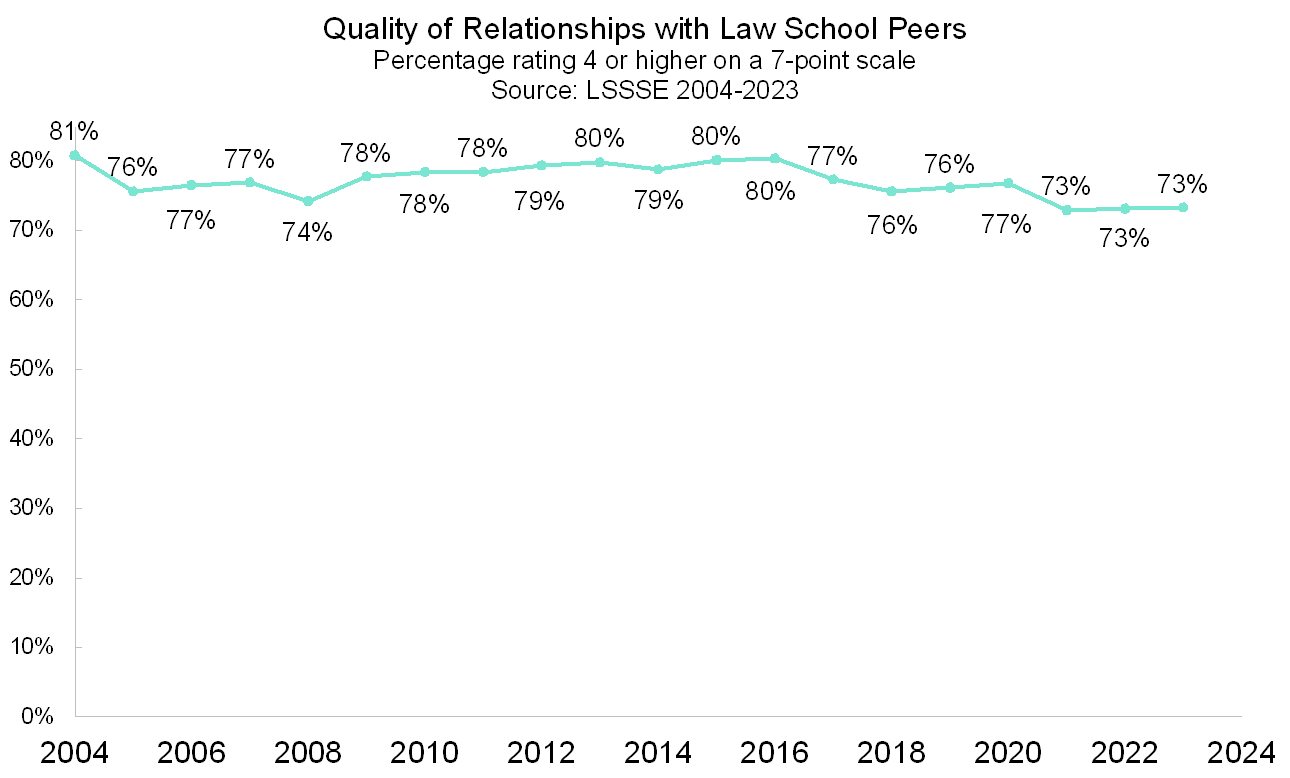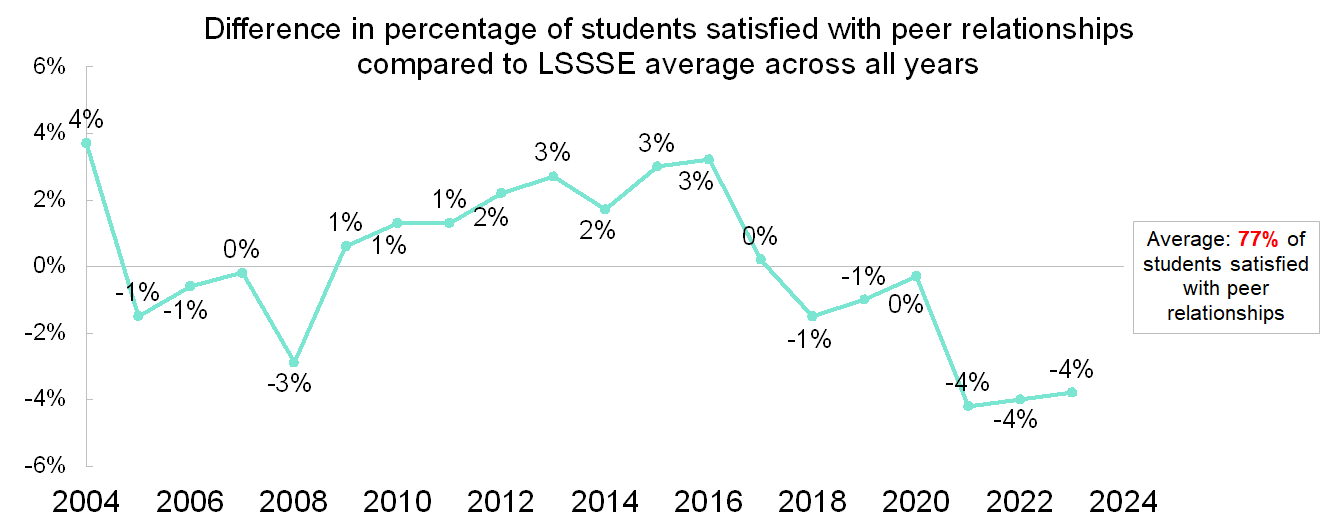A common misconception about law students is that their competition with each other for grades, jobs, and prestige creates a stressful and hostile law school environment. However, this is not the case for most law students who often find opportunities for support and friendship among their peers. Law students share common challenges and goals, and they can benefit from exchanging ideas and resources with each other. Many law schools also foster a culture of collegiality and mutual respect, where students are encouraged to help each other and celebrate each other’s achievements. Rather than being a source of stress, peer relationships can be a source of resilience and well-being for law students. In fact, LSSSE data from 2023 show that only 38% of law students experienced quite a bit or very much stress or anxiety because of competition with peers. They are far more likely to be substantially stressed by academic performance (80% of students) and academic workload (79% of students).
Since the 2004 LSSSE inaugural survey, an average of 77% of law students have said that their overall relationships with other students are mostly positive (at least a 4 on a 7-point scale). This number has fluctuated over time, with 81% of students having mostly positive relationships in 2004 and 73% of students feeling similarly in 2023.

If we compare the percentage of students having an overall positive relationship with peers to the all-time LSSSE national average of 77%, we can see that the last several years have had slightly lower levels of peer satisfaction.

Although satisfaction with peer relationships was already on a somewhat downward trajectory before COVID-19, the notable decrease in relationship satisfaction during the 2020-2021 academic year may be largely driven by the decrease in relationship satisfaction among 1L students. In the spring of 2020 (largely before COVID-19 shutdowns started), 80% of 1L students were satisfied with their relationships with their fellow students. In the spring of 2021 after a year of huge disruptions in the law school environment including widespread online learning, only 72% of 1L students felt this way. However, 74% of 3L students were satisfied with their peer relationships in 2020 and again 74% of 3L students felt this way in 2021. Students who were introduced to law school in a time of necessary isolation were understandably somewhat less able to bond with their classmates. Orientation programs, study groups, moot courts, clinics, extracurriculars, and informal gatherings were either canceled, restricted, or moved online. These disruptions may have hindered the ability of 1L students to establish friendships and build rapport. Furthermore, online learning may have decreased the frequency and quality of interactions among students, as well as the sense of belonging and community that stems from being physically present in a shared space. Nevertheless, relationships among law students remained positive overall, showing that even the limitations of pandemic life did not prevent characteristically creative and resilient law students from forging relationships with each other. It will be interesting to examine how law students feel about their relationships with each other in future years now that life has largely returned to the pre-pandemic normal.
